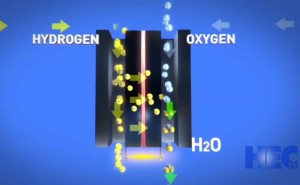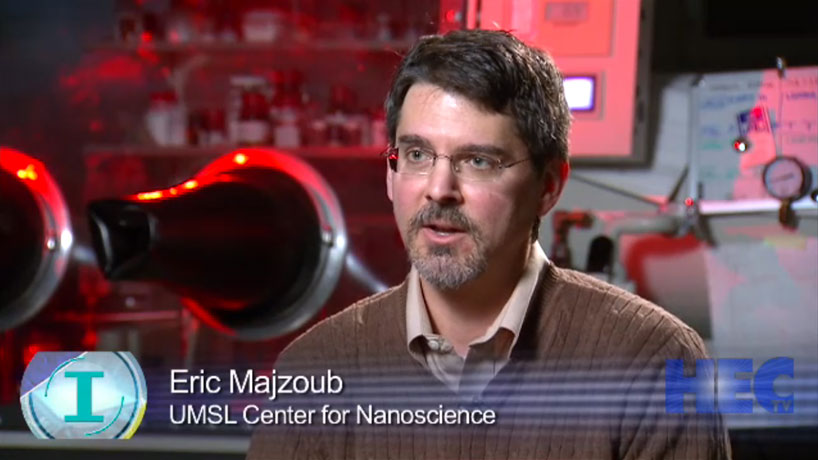“In the U.S. alone, we use over 400 million gallons of gasoline a day,” says University of Missouri–St. Louis Physics Professor Eric Majzoub in an HEC-TV segment exploring his alternative fuel research. He focuses on hydrogen fuel cell technology.
It’s one of the main headlines for the month of March on the station’s science and technology show “Innovations.” Producer Kathleen Berger sat down with Majzoub to discuss exactly what hydrogen fuel cell technology is and the significant solutions it offers for the automobile industry and the environment.
“When you burn hydrogen, you simply get water as a product,” Majzoub says to Berger in the segment. “That would eliminate all of the carbon dioxide emissions [from automobiles].”
That goal requires storing a large amount of hydrogen on board vehicles, which he points out is a problem when tanks still need to be small enough to be incorporated into the build of the car. That’s why Majzoub, who is also assistant director for the Center for Nanoscience at UMSL, is researching solutions on the nanoscale.

An HEC-TV diagram of a hydrogen fuel cell sliced in half shows how hydrogen reacts when it passes through the cell and comes in contact with oxygen. The hydrogen bonds with the oxygen to create H2O (water). The negative charge of the hydrogen and positive charge of the H2O result in electricity, seen at the bottom of the fuel cell.
The U.S. Department of Energy funds his lab to create nano-sized materials that rapidly absorb the hydrogen molecules out of the gas phase and store them in a chemically solid form. When heated later, the nano-sized material releases the hydrogen in the fuel cell, which reacts with oxygen molecules, emitting water and creating electricity to energize the car.
“The high surface area carbon material has large pore volume,” Majzoub says. “This bonds with hydrogen, allowing more rapid uptake.”
That means quicker refueling, an important factor when competing with gas fueling, which, on average, takes under five minutes.
But hydrogen fuel cell vehicles still offer another advantage that may be worth the wait at the pump – a 300-mile fuel range.
Besides fueling cars, Majzoub also touches on how his research offers solutions for improved battery life and energy storage for everyday electronics.
Watch the full segment here or visit HEC-TV’s website.















